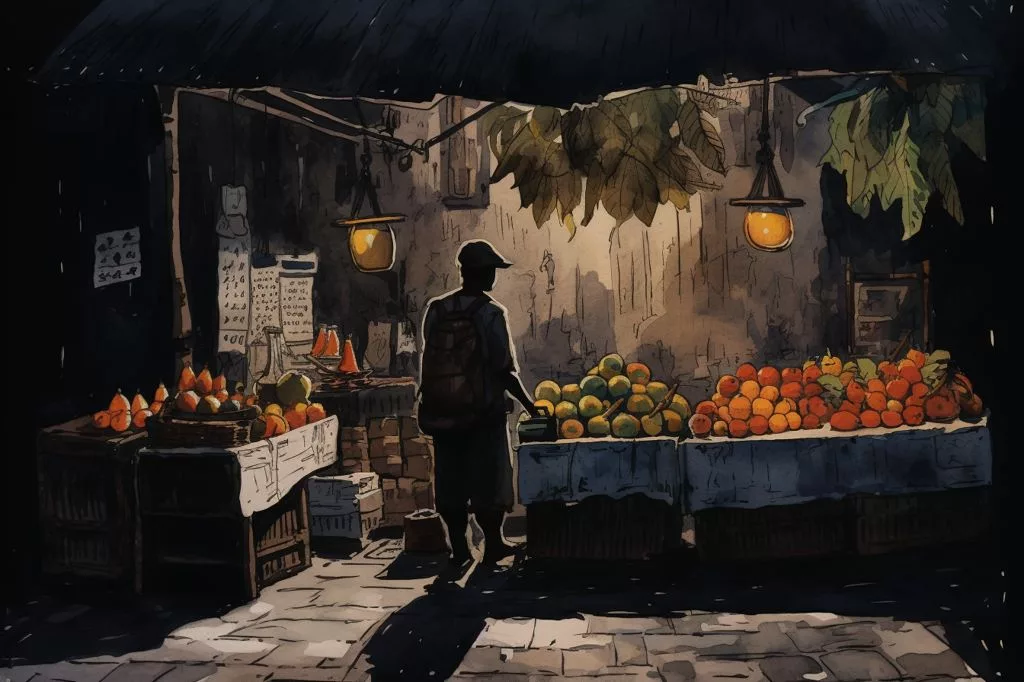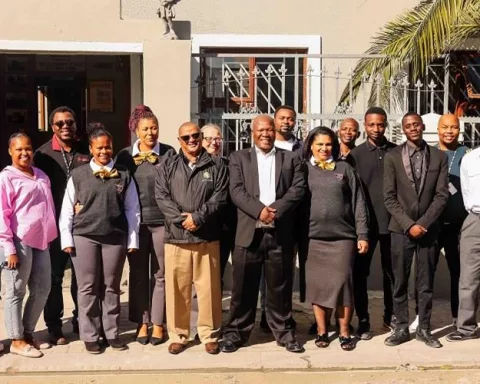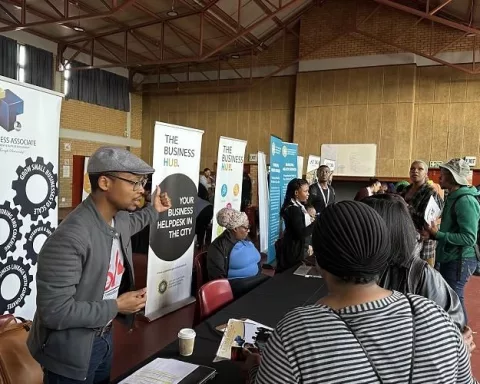Businesses in Cape Town are facing a significant increase in violent extortion, which has led to service disruptions and halted essential services, such as waste collection, in various communities. Small businesses like roadside meat vendors, barbershops, and spaza shops are left vulnerable to gangs who force them to pay exorbitant fees for alleged protection. The city is launching an anti-extortion initiative to encourage more individuals to report such incidents, and security and law enforcement personnel have been dispatched in greater numbers to crucial hotspots. The aim is to crack down on the criminals responsible and ensure a sense of security and stability for citizens and businesses.
The Surge of Violent Extortion in Cape Town
In Cape Town’s townships, the incidents of violent extortion have seen a significant increase, as criminals threaten local residents, enterprises, and even city workers. The repercussions of these threats are so dire that essential services, such as waste collection, have been halted in various communities like Gugulethu, Nyanga, and Philippi East. The City of Cape Town has linked this escalation in violence to a rise in gang activity in Manenberg, leading to the temporary suspension of services in the region.
Among the victims of this extortion crisis are not only the inhabitants but also small and informal businesses like roadside meat vendors, barbershops, salons, shebeens, and spaza shops. Due to the absence of adequate and visible policing, these businesses are left vulnerable to gangs, who force them to pay exorbitant fees for alleged protection. GroundUp, a South African news organization, interviewed several victims who recounted their frightening experiences, but their identities have been kept anonymous for their safety.
A fruit vendor in Philippi disclosed the devastating impact of the protection fee on his business, describing how it cuts into his profits. A salon proprietor in Nyanga, who previously paid R1,500 ($102) per month for protection until it became unaffordable, echoes his sentiment. The situation further deteriorated when several groups began demanding “protection” fees from the same businesses, putting additional strain on already struggling entrepreneurs.
The Far-Reaching Effects of Violent Extortion
The violent extortion threats have extensive consequences for the affected communities. Service disruptions and the need for police escorts for general workers have disturbed the lives of thousands of people living and working in these areas. The City’s Urban Waste Management directorate has called on the South African Police Service (SAPS) to act swiftly against those behind the protection schemes, asserting that criminals should not be permitted to compromise service delivery in this way.
As a response to the issue, the City intends to launch an anti-extortion initiative to encourage more individuals to report such incidents, assisting police and law enforcement agencies in identifying the racketeers. Security and law enforcement personnel have also been dispatched in greater numbers to crucial hotspots. According to Luthando Tyhalibongo, City spokesperson, extortion is primarily orchestrated by well-organized, profitable, and skilled syndicates, which affect various projects and programs within the municipality.
SAPS Western Cape spokesperson, Andre Traut, conceded that extortion is high on the priority list for police in the province. He encouraged the public to contact the SAPS toll-free extortion hotline or Crime Stop to report any incidents. Traut verified that multiple cases are currently under investigation, and some are being processed in court.
Restoring Safety and Stability in Cape Town
As Cape Town grapples with the surge of violent extortion, the city aims to crack down on the criminals responsible and ensure a sense of security and stability for its citizens and businesses. This pervasive issue can only be effectively tackled through meticulous reporting and cooperation between communities and law enforcement, enabling the city to regain control over essential services and the safeguarding of livelihoods.
1. What is the current situation in Cape Town regarding violent extortion?
Businesses in Cape Town are facing a significant increase in violent extortion, which has led to service disruptions and halted essential services, such as waste collection, in various communities. Small businesses like roadside meat vendors, barbershops, and spaza shops are left vulnerable to gangs who force them to pay exorbitant fees for alleged protection.
2. What is the impact of violent extortion on small businesses in Cape Town?
Small and informal businesses like roadside meat vendors, barbershops, salons, shebeens, and spaza shops are left vulnerable to gangs, who force them to pay exorbitant fees for alleged protection. Due to the absence of adequate and visible policing, these businesses are left vulnerable to gangs, who force them to pay exorbitant fees for alleged protection.
3. How has the increase in violent extortion affected essential services in Cape Town?
Service disruptions and the need for police escorts for general workers have disturbed the lives of thousands of people living and working in these areas. Waste collection services have been halted in various communities like Gugulethu, Nyanga, and Philippi East.
4. What is the City of Cape Town doing to address the issue of violent extortion?
The City of Cape Town is launching an anti-extortion initiative to encourage more individuals to report such incidents, and security and law enforcement personnel have been dispatched in greater numbers to crucial hotspots.
5. What is the aim of the anti-extortion initiative launched by the City of Cape Town?
The aim is to crack down on the criminals responsible and ensure a sense of security and stability for citizens and businesses.
6. Who is primarily behind the extortion schemes in Cape Town?
According to Luthando Tyhalibongo, City spokesperson, extortion is primarily orchestrated by well-organized, profitable, and skilled syndicates, which affect various projects and programs within the municipality.
7. How can the public report incidents of violent extortion in Cape Town?
SAPS Western Cape spokesperson, Andre Traut, encouraged the public to contact the SAPS toll-free extortion hotline or Crime Stop to report any incidents.
8. What is the role of the community in restoring safety and stability in Cape Town?
This pervasive issue can only be effectively tackled through meticulous reporting and cooperation between communities and law enforcement, enabling the city to regain control over essential services and the safeguarding of livelihoods.












